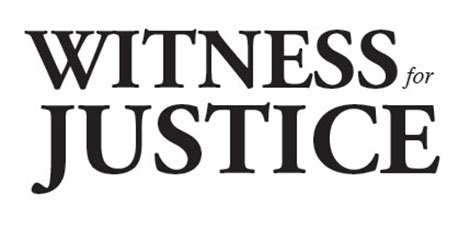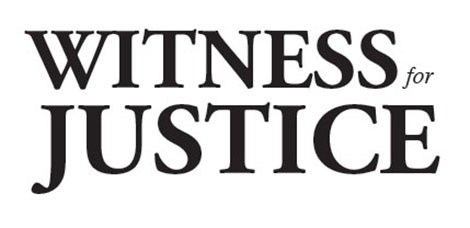Commentary: Justice work means working with the most vulnerable
 When we think of justice advocacy, we often think actions such as writing letters to congress, marching on Capitol Hill or participating in a boycott. Few of us would consider disasters to be linked to justice work because disasters don’t discriminate… or do they? It is true that many natural disasters impact rich and poor; young and old; black and white; educated and uneducated; insured and uninsured; employed and unemployed, but the reality is that certain communities are more susceptible to disasters than others. Because of systemic injustices, they are more vulnerable.
When we think of justice advocacy, we often think actions such as writing letters to congress, marching on Capitol Hill or participating in a boycott. Few of us would consider disasters to be linked to justice work because disasters don’t discriminate… or do they? It is true that many natural disasters impact rich and poor; young and old; black and white; educated and uneducated; insured and uninsured; employed and unemployed, but the reality is that certain communities are more susceptible to disasters than others. Because of systemic injustices, they are more vulnerable.
Recently I traveled to Port Arthur, TX, in response to flooding from Hurricane Harvey. Port Arthur was inundated by floodwaters leaving many of its families and residents with few options. The median income there is approximately $32,000, barely half of the national average. Nearly 30 percent of the city lived in poverty in 2015, a percentage that most has certainly increased since the flooding.
For the past 12 years I’ve traveled throughout the U.S and around the globe responding to disasters of all types, scale and scope. I sorely wish I could say that what Port Arthur experienced was a coincidence or an anomaly, but it is not. As often as I see impoverished communities impacted by disaster, low-income families too are disproportionately affected when disasters strike, simply because of factors that relate to their socioeconomic status, race or education. Disasters expose the inequality, injustices and prejudices in our society, yet they also provide a unique opportunity to respond as well.
I strongly believe that justice work should be interwoven into our everyday lives. Justice work is difficult, it’s dirty, it requires being vulnerable, placing ourselves in another’s shoes, and being willing to learn and grow in our own understanding of what a “Just World For All” really means. Each day I am personally challenged to step out in faith and seek ways to do justice, love mercy and walk humbly with my God. The vile, divisive rhetoric that we hear coming from national leaders is powerless against the relationships we build and the love we show to others in their time of greatest need.
I’m proud to serve as the executive for UCC Disaster Ministries because of our role in addressing injustices. UCC Disaster Ministries focuses on responding in communities where systemic injustices persist and where our responses can directly build capacity. Port Arthur is one such example where we are working closely with a local non-profit community development corporation to repair homes that will help displaced renters return home and also increase the number of affordable housing options in the community.
By empowering these families, offering hope and building relationships we break down barriers of injustice and prejudice that threaten the very fabric of our common humanity. Praise be to God.
Zach Wolgemuth is the Executive for UCC Disaster Ministries.
View this and other columns on the UCC’s Witness for Justice page.
Donate to support Witness for Justice.
Click here to download the bulletin insert.
Related News
“I am thirsty”
Last March, when a child who was stuck under the rubble of a collapsed building in Gaza saw...
Read MoreSpringing Forward
Spring is in bloom in my neighborhood. Trees are budding. Flowers are starting to blossom. The...
Read MoreIt’s Time to Get into Good Trouble
On Tuesday, April 3, history was made by U.S. Senator Cory Booker who spoke on the Senate...
Read More

